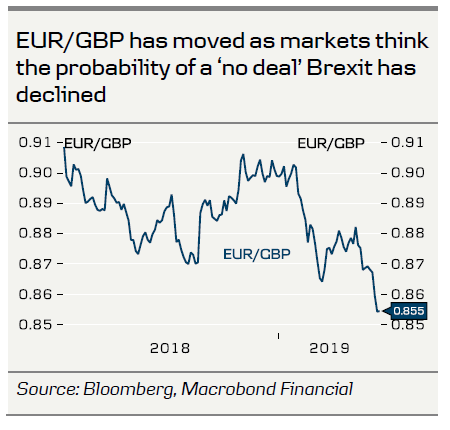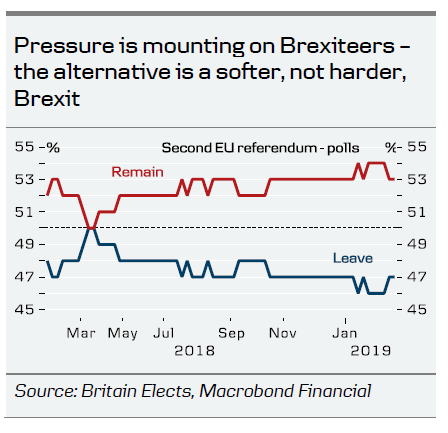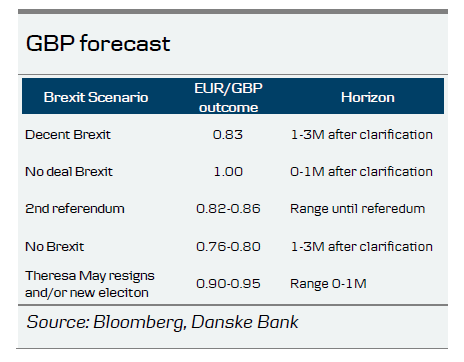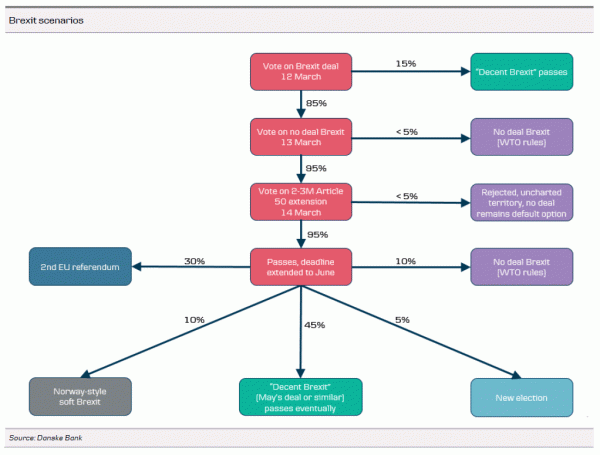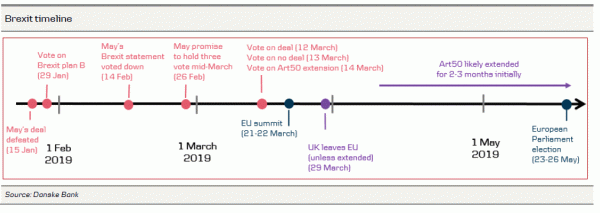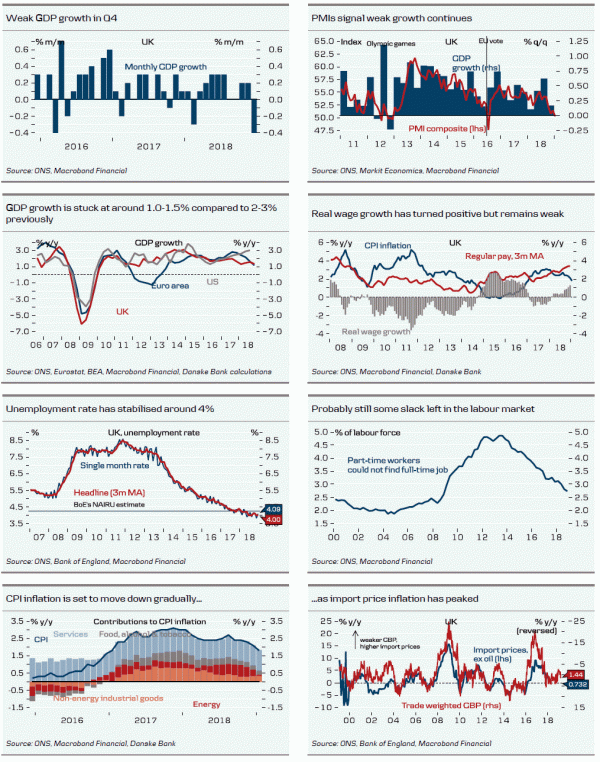After 48 very eventful hours, it is appropriate to take stock on Brexit. PM Theresa May has promised three important votes in mid-March, which now, after the passing of the Cooper amendment, sets down in writing May’s pledge. On Tuesday 12 March, the House of Commons is set to vote on a full Brexit deal. In case it is voted down (or if there is no deal by then), the House of Commons is set to vote on Wednesday 13 March on whether it can support leaving the EU without a deal. If that is not the case either, the House of Commons is set to vote one last time on Thursday 14 March on whether to ask the EU27 for an extension (two to three months) of the Article 50 deadline. It seems like the game plan is to finalise the deal with the EU27 as late as on Monday 11 March. With the new development, we have updated our game tree accordingly, see next page. We think the probability of May’s deal passing on 12 March is low (15%) although we have seen some softening in the Brexiteers’ position on the backstop, probably because they know the alternative to something like May’s deal is only softer and not cleaner/harder (also because of Labour’s big policy shift). A big game changer is still if May can persuade the DUP to come on board (many Brexiteers will likely follow suit then). Pressure is clearly rising. If we are wrong and the UK accepts the deal, the EU27 can sign it off at the EU summit on 21-22 March but the UK would probably need a short extension in order to pass the necessary secondary legislation.
We think the probability of the House of Commons voting in favour of a ‘no deal’ on Wednesday 13 March is very slim, likely to be below 5%.
On Thursday 14 March, we expect the House of Commons to vote in favour of extending Article 50 by two to three months. That said, it is still up to the EU27 leaders to unanimously accept the proposal and the leaders are divided on whether to accept an extension and if so, how long it should be. While Tusk is in favour of a very long extension, France’s President Macron is not sounding as one supporting an extension unconditionally. If the House of Commons, against our expectations, votes down asking for an extension as well, some say that we will be in uncharted territory but, in reality, we are just back to the default option, which is the UK leaving the EU without a deal.
In case of an extension, the fights are just postponed by two-three months and it is not a given that things would change dramatically from here, at least not in the very near term. Some still need to give in and change views eventually – who blinks first? We stick to our long-held view that the two most likely scenarios are either May’s deal (or something very similar) passing eventually or a second EU referendum. We have lowered our expectation of a no deal Brexit slightly.

